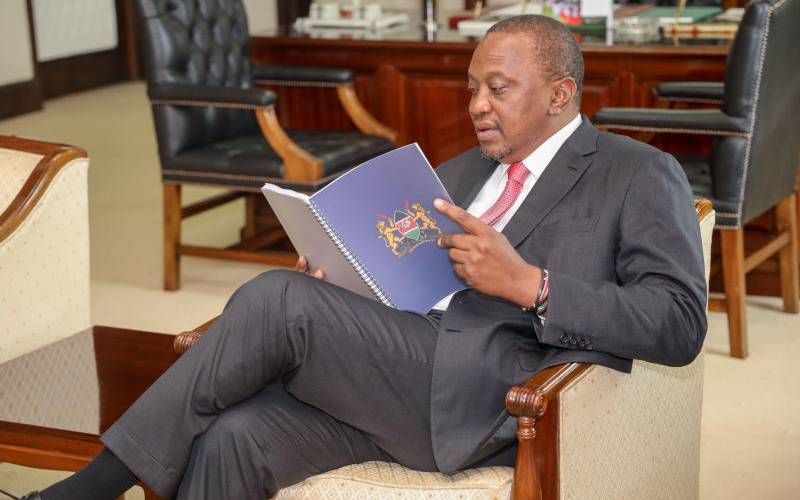×
The Standard e-Paper
Kenya’s Boldest Voice

President Uhuru Kenyatta reads through the Building Bridges Initiative report when he received it at State House, Nairobi. [File, Standard]
The Building Bridges Report has been unveiled, paving the way for bold and honest debate on the way forward for Kenyans.